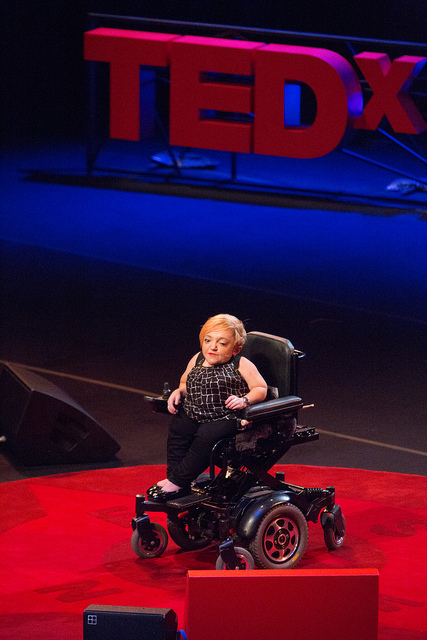Tips, strategies, approaches, attitudes and ways to support a person living with disability in particular brain injury

End of Life and a good death. Image by Chris Scott
Can we help to make our end of life a good death for ourselves and for others? What tips and strategies might contribute to having our needs and wishes met? To make our end of life a good death. The first article in this series To Talk or Not To Talk About: End of Life A Good Death describes a number of issues that lead me to this discussion about end of life a good death. The second article A Good Death: End of Life and Dying contains thoughts about why it is important to consider and discuss our needs beforehand. I remember many years ago in a local hospital a young husband and wife, both of whom were dying from terminal illnesses. Both had been, and continued to be rebellious and forthright. Many hospital staff were unable to cope. The couple challenged others owing to their black humour - jokes about who would die first; their insistence on wearing brief black clothing as they…

End of Life and Dying Image by Chris Scott
Why is it important to talk more freely about end of life and dying? Most of us hope for a "good death" when the time comes - but what is it? Last week I talked about what lead me to this discussion of end of life and dying and why it is important to talk more openly about end of life and dying. Today, I want to talk more about why it is important to consider and discuss our needs for our end of life and dying - before it happens. Why Talk About Dying and End of Life? It Is Inevitable A very cliched statement; I don’t know what else to do except repeat it “death is inevitable”. It’s a part of life, yet it is a part of life we often seem reluctant to discuss. It is important to talk about for ourselves, for those we care about, and those we have responsibility for. It Can Promote ‘A Good Death’…

End of Life: Fisheye view by Chris Scott
The time leading up to the end of life - after brain injury - or at any time, is a topic one should maybe leave alone. I want to talk about it. I believe we should all talk about it. I know it is thought to be a private subject, yet what happens at the end of our life while very personal, is also universal. We can easily forget end of life can happen at any age, not just old age. And one day it has to happen to all of us. So why not talk about it. I have always believed it needs to be talked about more openly and naturally. My own experience, early in 2014, when my father was dying made this even more important for me. So here, and for the next 2 weeks I am sharing my own thoughts, and resources I have discovered. My hope is to encourage more natural and fear-less discussion about end of life and…
How do you manage sudden or escalating challenging behaviour after brain injury, or any time? Damage to the brain, for example the frontal lobe, can sometimes cause changes in behaviour after brain injury. Sometimes this results in behaviour that challenges supporters and people around. It can also result in behaviour that is unpredictable. Even with an agreed behaviour plan in place; sudden, explosive or escalating behaviour can still occur. This will often need immediate support and management from family, supporters, or people who are close by. It can be difficult to respond quickly and effectively when you are taken aback by the behaviour, you are in a public space, it is a behaviour you find difficult to tolerate it is something you have not managed before. Responding To Immediate Challenging Behaviours When you are with a person who has unpredictable challenging behaviours, the likelihood of needing a strategy ‘on the run’ to call on in emergency situations is high.…

Mask-making Soldiers Trauma and Brain Injury
Masks have been used in many cultures and throughout history for protection, theatre, disguise. This is about soldiers creating art - masks - to help understand their trauma and brain injury. I do not quite know how to describe the moment I opened the envelope and saw “Healing Soldiers” the cover of the February 2015 National Geographic magazine. It was a moment that stopped me, taking my breath away. A posed photograph of a USA Marine Gunnery Sergeant in full uniform: standing, holding a mask he had created after his own trauma and brain injury. A powerful article on using creativity, art, and the impact it is having on trauma and brain injury in soldiers. It is powerful, positive, touching, sad, creative ... I could go on. I encourage you to explore the article for yourself: [button link="http://www.nationalgeographic.com/healing-soldiers/index.html" size="large" style="info" color="silver" window="yes"]Behind the Mask: Revealing the Trauma of War[/button] Creating Masks - More About Soldiers With Trauma and Brain…

Embrace Difference Stella Young Image by Jean-Jacques Halans
Confession time … I don’t like the word “inclusion”. I don’t like the term “special” when it is used to separate people "special needs". I don’t even like “awareness weeks”. Oh and I am not really fussed about “embrace difference” but I have used it today owing to a lack of imagination on my part! I believe all of these terms can give people opportunity to reinforce difference, separation, exclusion from life. These words can mean talk but not a lot of action. Talk without real change. I discovered similar points, though much better put, when listening to an interview with Stella Young (link below) from ABC radio in Australia. Why Talk About 'Embrance Difference'? My listening to the interview with Stella, happened at the time of a siege in Sydney, Australia. This also brought out the best (and worst) of the fear of difference. One of the best embodied in the #I'llridewithyou movement begun at this time by one young woman,…

Image by hisk at RGBstock.com
Writing an article for a newsletter early in 2014 coincided with the realisation I have been working alongside people with brain injury and their families for over 25 years! I was asked to submit an article to a Newsletter prepared by the Senior Masters Office in Melbourne, Australia for their many beneficiaries. This request also came at a time when my father’s condition deteriorated after years of living with Dementia. I wrote IMAGINE, about thoughts I had when Dad died in April 2014. What follows is a reprint of the article originally published in the Senior Masters Office. You can also see this in the Newsletter along with other information published by the Senior Masters Office. A Few Short Lessons Learned About Brain Injury My father has advanced dementia, as I sat with him recently I thought about what an extraordinary organ the brain is. It can help us achieve incredible things. Yet it can also cause all sorts of…
Reduced speed of information processing: I have a picture of an information superhighway with information flying along at great speed. Suddenly it is thrown into chaos because some stuff begins to slow down and not follow the rules. These slower pieces get in the way of other information whizzing along and the information superhighway is disrupted. What does information processing look like? How does it affect the function of the brain? What Is Information Processing? Let’s start with a challenge: Can I write a very simple description of ‘Information processing’ that is able to be understood? Here goes: 'Information processing' is part of what the brain needs to do so we can function efficiently: The brain needs to quickly sort out, and prioritise all the millions and millions of inputs it receives, from all parts of the body, every second of every day. It then has to decide on the spot what to action now, what to keep for later,…

Pixabay.com
No it's not gremlins in the website. It's my attempt at a clever title about Task Busters- see below! It came about because a support worker asked me about 'Breaking tasks down into manageable steps’. It is a familiar strategy after brain injury. How do you do it in real life? Be a Task Buster It's like 'Ghostbuster' (as in the movie) only this is for tasks, not ghosts. The title above is my attempt to phonetically sing the Ghostbusters Theme Song for you! You are very welcome to recommend improvement. To get things done in life, and use the energy resources we have well, we all need to do a bit of task busting. This goes for whether you are helping someone else organise tasks, or you are going to be your own 'Task Buster'. Unfortunately I cannot claim credit for the term ‘Task Busting’. This great term and the two tricks for success below, come from a book I have…
We do better when we build from what we do well. We do better when we work from our strengths. We mostly know this about ourselves, but how do we put it into practice? Working from a strengths based approach does not always come easily and naturally to everyone, yet it can be life changing for both the facilitator and the person being assisted. One of the tools I have found helpful is the 5 Column approach. Developed by St Lukes I have found it an effective tool to guide and assist myself, and others to identify steps for change. For more about the strengths approach I recommend a book I have found very useful: “The Strengths Approach: a strengths-based resource for sharing power and creating change” by Wayne McCashen. Along with information on developing and working from a strengths based approach in a very practical way, it also contains an explanation with examples of the 5 column approach in action. While…









